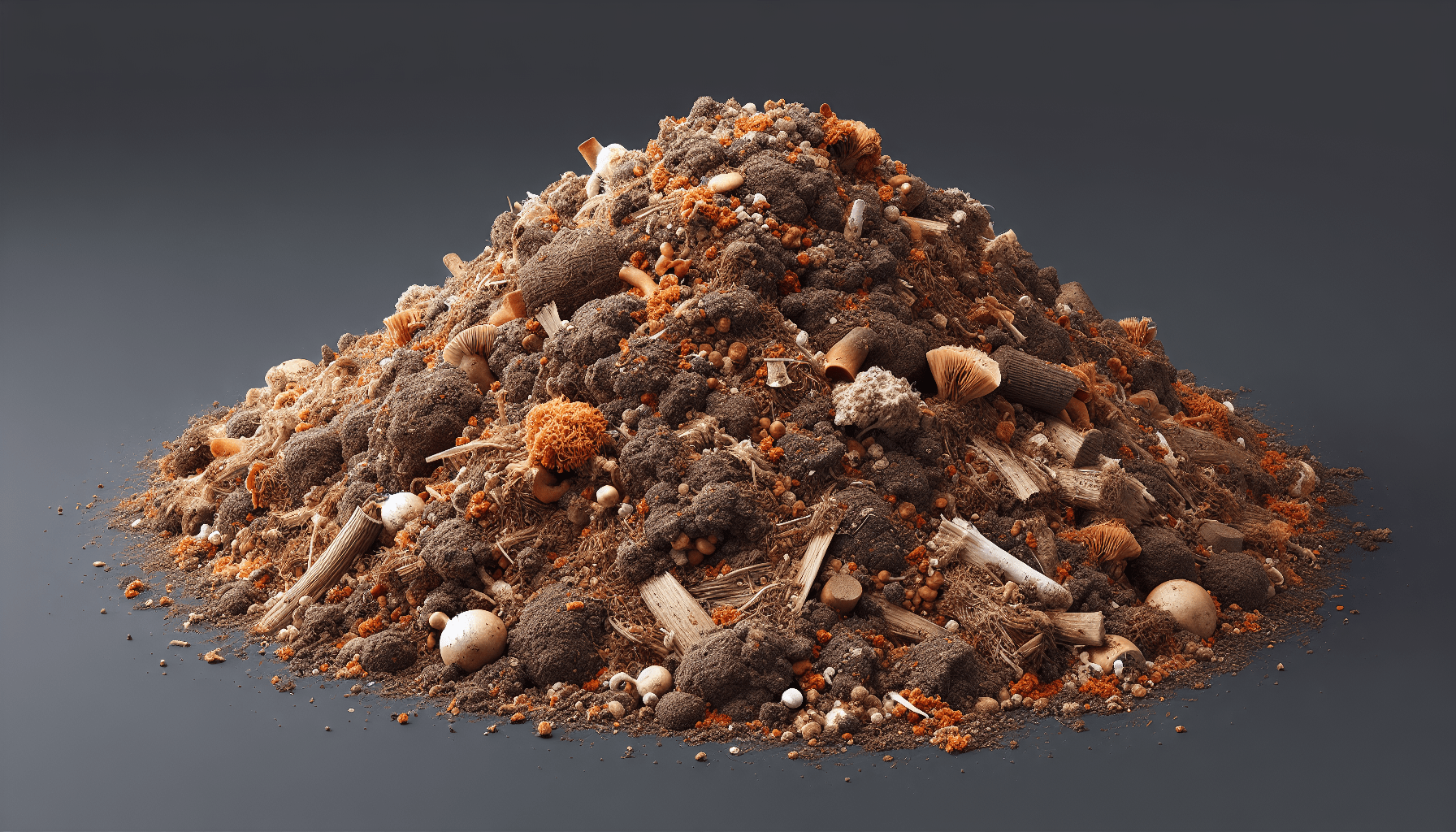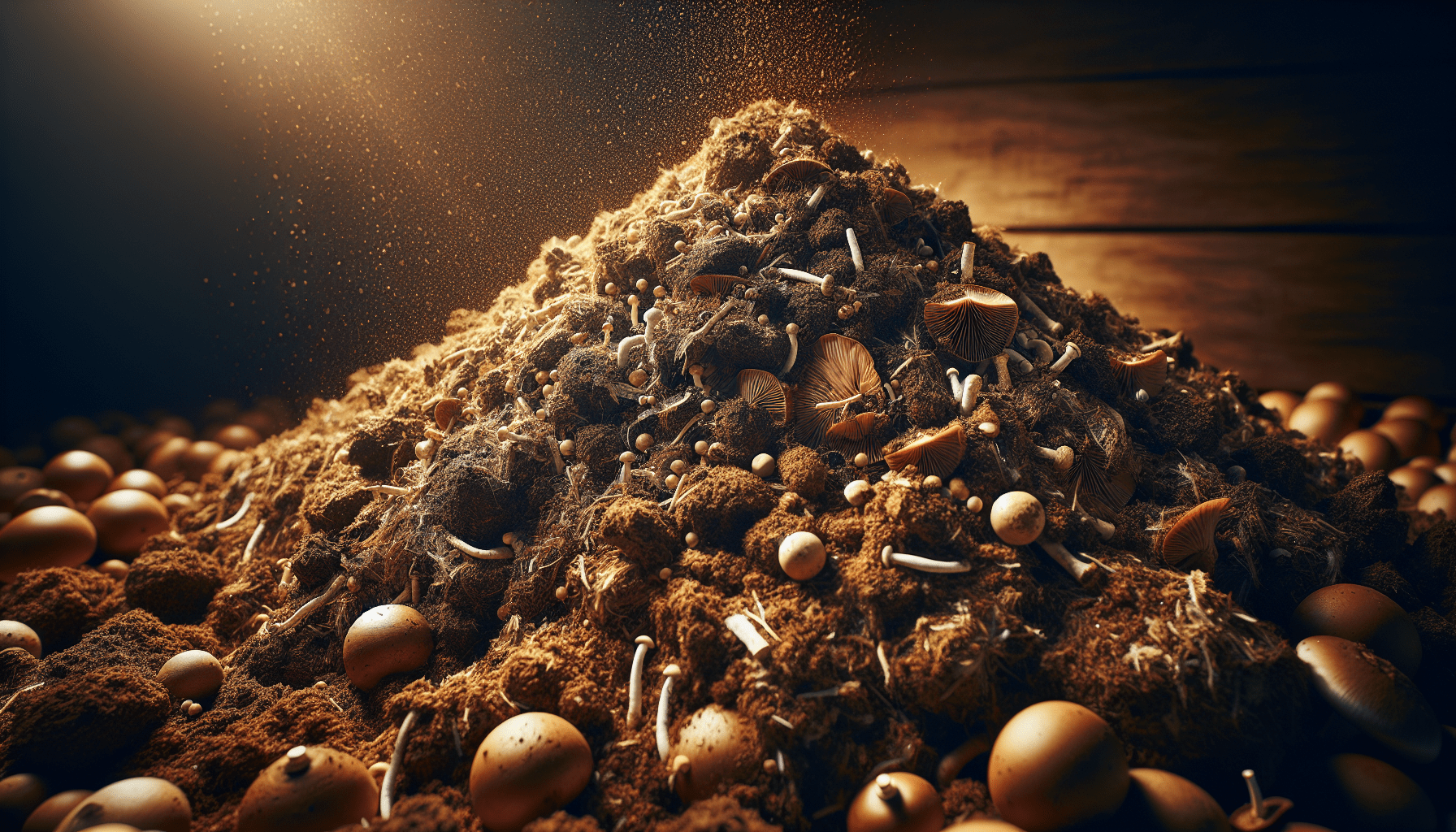Do I Need To Sterilize Mushroom Compost Before Using It?
Do I need to sterilize mushroom compost before using it? If you’re new to gardening or mushroom cultivation, you might be wondering whether or not you need to sterilize your mushroom compost before using it in your growing endeavors. This article will provide you with all the information you need to make an informed decision.

What is Mushroom Compost?
Mushroom compost, also known as mushroom soil or mushroom manure, is a popular soil amendment used in gardening and farming. It is a blend of various organic materials that have been composted and broken down into a rich, nutrient-dense mixture. Mushroom compost is an excellent source of organic matter, beneficial microbes, and essential nutrients that plants need to thrive.
Mushroom compost is typically made from a combination of ingredients such as straw, hay, horse manure, poultry litter, gypsum, and other organic materials. These ingredients are mixed together and allowed to compost for a period of time, usually a few weeks to a few months, depending on the composting method used.
Why Use Mushroom Compost?
Mushroom compost is highly valued for its ability to improve soil structure, increase soil fertility, and promote healthy plant growth. It is often used by gardeners and farmers to enrich garden beds, boost plant growth, and improve overall soil health.
Using mushroom compost in your garden can help increase water retention, improve drainage, enhance soil aeration, and provide a steady supply of nutrients to your plants. It is an excellent way to replenish soil that has been depleted of nutrients from previous plantings and to promote beneficial soil organisms that aid in nutrient uptake.
Do I Need to Sterilize Mushroom Compost?
Now that you know what mushroom compost is and why it is beneficial for your plants, let’s address the question of whether or not you need to sterilize it before using it in your garden.
When to Sterilize Mushroom Compost
Sterilizing mushroom compost is not always necessary, but there are certain situations where it may be beneficial. If you are using mushroom compost that has been sitting for a long period of time, has a foul odor, or shows signs of contamination, sterilizing it may be a good idea.
Sterilizing mushroom compost can help kill off any harmful pathogens, weed seeds, or unwanted pests that may be present in the compost. It can also help prevent the spread of diseases to your plants and promote healthier plant growth in the long run.
How to Sterilize Mushroom Compost
There are several methods you can use to sterilize mushroom compost, depending on your needs and resources. The most common methods include heat sterilization, chemical sterilization, and solarization.
Heat sterilization involves heating the mushroom compost to a high temperature, usually around 160°F (71°C) for a period of time to kill off any pathogens or unwanted organisms. This method requires a heat source such as a steam sterilizer, pasteurization unit, or oven, and careful monitoring of temperature to ensure effective sterilization.
Chemical sterilization involves using chemical agents such as hydrogen peroxide, bleach, or lime to sanitize the compost and kill off harmful organisms. This method is effective but requires caution as some chemicals can be harmful to plants and soil organisms if not used correctly.
Solarization is a more natural method of sterilizing mushroom compost using the heat of the sun. By covering the compost with a clear plastic tarp and exposing it to direct sunlight for an extended period of time, you can raise the temperature of the compost to levels that will kill off pathogens and unwanted pests.
When Not to Sterilize Mushroom Compost
While sterilizing mushroom compost can be beneficial in certain situations, it is not always necessary and may not be practical for everyone. If you are using freshly produced mushroom compost from a reliable source, free from contamination, and you have no reason to suspect any issues with the compost, then sterilization may not be needed.
Keep in mind that sterilizing mushroom compost can also kill off beneficial microbes and organisms that are essential for healthy soil and plant growth. If you are practicing organic gardening or prefer a more natural approach, you may want to consider using unsterilized mushroom compost to retain its full microbial diversity.
Learn about mushroom composting
How to Use Mushroom Compost in Your Garden
Once you have decided whether or not to sterilize your mushroom compost, you can proceed with using it in your garden to benefit your plants and improve soil health.
Mixing Mushroom Compost with Soil
One of the simplest ways to use mushroom compost in your garden is to mix it with your existing soil before planting. Simply add a layer of mushroom compost to the topsoil and blend it in thoroughly to incorporate the compost with the soil. This will help improve soil structure, fertility, and nutrient availability for your plants.
Top Dressing with Mushroom Compost
Another way to use mushroom compost is to apply it as a top dressing on your garden beds and around your plants. Simply spread a layer of compost on the soil surface, making sure to leave some space around the base of your plants to prevent root rot. Water the compost thoroughly to help it settle into the soil and provide nutrients to your plants.
Making Mushroom Compost Tea
Mushroom compost tea is a nutrient-rich liquid fertilizer that can be made by steeping mushroom compost in water and then using the resulting liquid to feed your plants. To make mushroom compost tea, place a handful of compost in a cloth bag or mesh container, submerge it in a bucket of water, and let it steep for a few days. The resulting tea can be poured directly onto the soil or sprayed on the foliage of your plants as a foliar feed.
Conclusion
In conclusion, whether or not you need to sterilize mushroom compost before using it in your garden depends on the quality of the compost, your gardening practices, and your personal preferences. While sterilizing mushroom compost can help prevent the spread of diseases and unwanted pests, it may not always be necessary and can affect the microbial diversity of the soil.
Ultimately, the decision to sterilize mushroom compost is up to you and should be based on the specific needs of your garden and plants. By following the guidelines outlined in this article and understanding the benefits of mushroom compost, you can make an informed choice that will help you achieve healthy, thriving plants in your garden.

